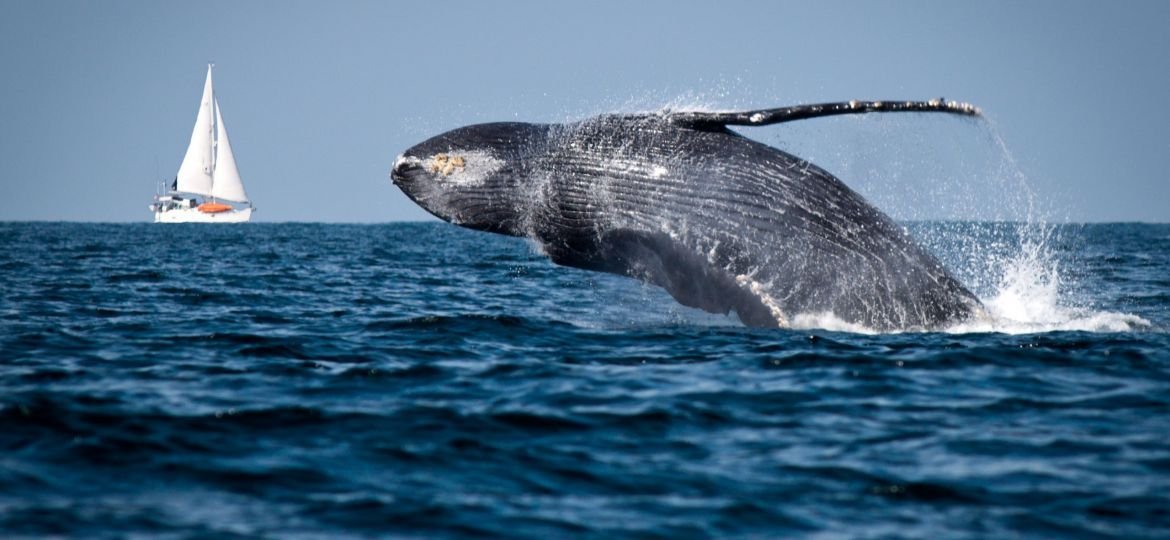
The Chilean Ministry of the Environment together with Meri Foundation of the Filantropía Cortés Solari group will install 6 monitoring floats to protect the whales from the greatest danger they face today: ship strikes.
How do they plan to do this? Through different smart buoys that will measure the marine conditions to determine the location of the cetaceans in the vicinity of different types of vessels.
Although whaling has been considerably reduced, whales are still endangered by ship strikes. The sounds emitted into the ocean by commercial vessels are in roughly the same frequency range as calls produced by large whales, which affects their communications and makes it more difficult for them to change routes before an accident.
To protect cetaceans, the government and Meri Foundation developed the Blue Boat Initiative project: an advanced early warning system that, through high-end technology, will alert ships to avoid collisions with whales.
The first 6 buoys, from a network expected to comprise several dozen, will be installed around Chiloé Island and the Gulf of Corcovado in late 2020 or early 2021, depending on the effects of the pandemic.
“The buoys of the Blue Boat Initiative project are considered smart because they integrate different functionalities. The buoy has an acoustic equipment, similar to an underwater microphone that will be able to detect the different sounds of the ocean, coupled with a high-tech software that can differentiate a large number of whale species,” explained Sonia Español-Jiménez, in charge of the initiative, to Futuro 360.
“Once the whales are detected, the device will emit a satellite alert that will deliver the information via Internet to a land station, which will warn the boats of the presence of a cetacean in their surroundings so that they can take preventive measures, in order to reduce the risk of collision with these underwater mammals as much as possible,” added Español-Jiménez.
The buoys are also smart because they have oceanographic sensors of temperature, pH, nutrients and oxygen to monitor the state of health of the oceans, explained the expert. This would allow scientists to track the conditions of the seas and monitor the progress of global warming. “The buoys seek to protect whales and monitor the state of the oceans. This will be the first initiative of its kind in Latin America, led by Chile, and with European technology,” added the specialist.
According to the International Whaling Commission between 2007 and 2016 more than 1,200 whales died due to ship strikes. Although it is difficult to monitor this situation in Chile, there are studies that have not yet been published that claim that since 2017 eight whales have died from collisions with vessels.
“This is a marine conservation effort, but it also seeks to increase important contributions based on the seas in the fight against climate change. The conservation and sustainable management of our ocean and its biodiversity is essential to maintain its unique ecosystems, some of which are fundamental to help mitigate climate change through heat absorption and carbon sequestration or blue carbon,” said Carolina Schmidt, the Chilean Minister of the Environment, to El Mercurio.
The IMF economist, Ralph Chami, estimated that a whale sequesters 33 tons of oceanic CO2 throughout its lifetime, which is equivalent to 1,500 times the capacity of a tree’s absorption of pollutants. This is why the death of a whale translates into a loss of US$2 million in preservation efforts, which is why it is imperative to take care of these majestic marine mammals.
This initiative puts Chile at the forefront of Latin American countries in efforts to understand and preserve marine life, in addition to bringing us closer to making a real impact when it comes to curbing the consequences of climate change.
Source: Futuro 360

